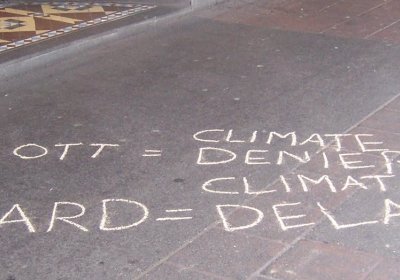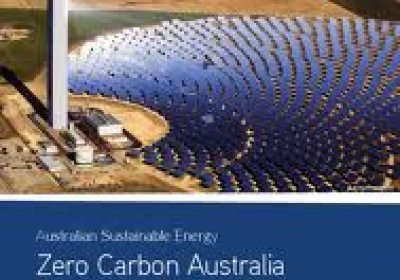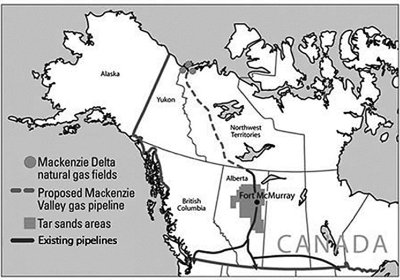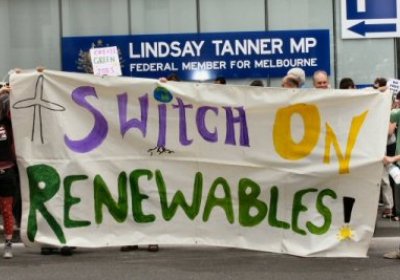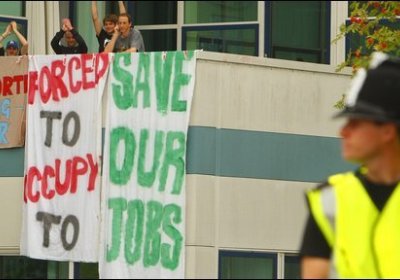In Russia, a seven-week-long heatwave has caused giant firestorms to break out across more than 114,000 hectares of the country. At least 48 people have died and more than 400 new fires broke out on August 4 alone, the Kyiv Post said that day.
Russian President Dmitri Medvedev said on July 30 that “practically everything is burning” in 14 regions of the country, Time said on August 2.
In the past, Medvedev has not seemed too concerned about climate change. At last year’s Copenhagen climate conference he bluntly announced that Russia would increase its emissions.
Environment
VoteClimate.org.au has released a detailed description of the climate policies of parties contesting the August 21 federal election. It is the world’s first dedicated climate election website and is run by climate activist Adrian Whitehead, a founder of Beyond Zero Emissions and a Target300.org campaigner.
The site, which includes links to each partiy’s policies, ranked the policies as following:
Mumia Abu-Jamal — on death row for more than 30 years in Pennsylvania for a murder he didn't commit — is an iconic figure. Yet while the struggle for his freedom continues, less attention is given to his role as a political leader.
While Mumia has not, to my knowledge, used the term ecosocialist, his passionate message to the US Social Forum on June 22 had a clear ecosocialist content.
Residents are organising to stop mining company LD Operations plans to start a new coal mine next to the town of Margaret River in Western Australia.
Margaret River is five hours south of Perth famous for its wineries, surfing spots and outstanding natural beauty.
A public meeting on August 1 with only one day’s notice drew 60 people. It is a sign of strong community opposition. There are plans to hold a demonstration as part of the national Walk Against Warming rallies on August 15.
On August 3, the Ecuadorian government signed a landmark deal to prevent drilling for oil in the ecologically unique Ishpingo-Tambococha-Tiputini areas of the Yasuni National Park (Yasuni-ITT).
The agreement, signed by the government of left-wing President Rafael Correa and the United Nations Development Program (UNDP), guarantees that the estimated 900 million barrels of oil that lie beneath the pristine Amazonian region will remain untouched, as will the forest above.
In the midst of a Federal Election and with the major party leaders equivocating on climate change and a price on carbon, the Zero Carbon Australia Stationary Energy Plan will be launched at a free public forum in Sydney Town Hall on Thursday 12 August at 6.00 pm.
Hosted by the journalist and broadcaster, Quentin Dempster, the speakers will include:
· Malcolm Turnbull, MP for Wentworth
· Bob Carr, former NSW State Premier
· Scott Ludlam, Greens Senator for WA
· Matthew Wright, Executive Director, Beyond Zero Emissions
· Allan Jones, Sustainability Expert, City of Sydney
Food security will be a focus of November’s Climate Change/Social Change conference, being held in Melbourne. An entire workshop stream will be devoted to the topic.
The global food system captures the insanity of production for profit: One in six people in the world are malnourished, yet the United Nations estimates that 40-50% of all food in the United States is wasted.
Food waste makes up to half of Australian landfills.
Canwest News Service reported on July 6 that the Canadian parliament’s Standing Committee on Environment and Sustainable Development had, at a secret June 17 meeting, abruptly cancelled a big report on the Alberta tar sands oil mining project and its impacts on water. The parliamentarians even destroyed draft copies of their final report.
After listening to testimony from scientists, bureaucrats, lobbyists, aboriginal chiefs and environmental groups, the committee dropped the whole affair like a bucket of tar. The Alberta provincial government refused to testify.
The “world’s first dedicated climate election website” Vote Climate, which rates political parties climate change policies, has recommended a vote for the Socialist Alliance in the upcoming August 21 federal elections.
Vote Climate provides detailed policy analysis based on available policy as the primary source, and public documents and public statements as a secondary source.
SA is ranked first as the only party that has “policies that might stop runaway climate change” and “adopt a climate emergency response”.
This federal election both Labor and the Coalition have failed to present any serious policies to address climate change. The Greens on the other hand have a plan to cut emissions, but does it go far enough?
The Coalition’s Tony Abbott rose to the leadership with the backing of a hardcore group of climate denier MPs. His “direct action” policy on climate change has two big problems: it’s not direct and it’s not much action.
One year after workers occupied the Vestas wind turbine factory on the Isle of Wight in protest at the company’s decision to cease production, a new organisation, Sureblades set up by former Vestas employees has risen from the ashes. It is due to start making blades within two months just yards from the closed factory.
After spending over two weeks on the road together, students and activists onboard the New South Wales “Indigenous Solidarity Ride” stopped at Olympic Dam on July 15 to protest against a proposed uranium mine expansion.
The bus riders travelled through rural NSW and South Australia to attend the Defending Indigenous Rights: Land, Law, Culture convergence in Alice Springs over July 7-9. They also took part in the Students of Sustainability conference in Adelaide.
- Previous page
- Page 282
- Next page

